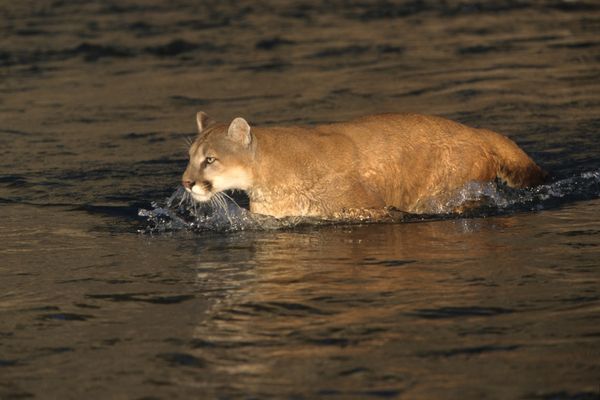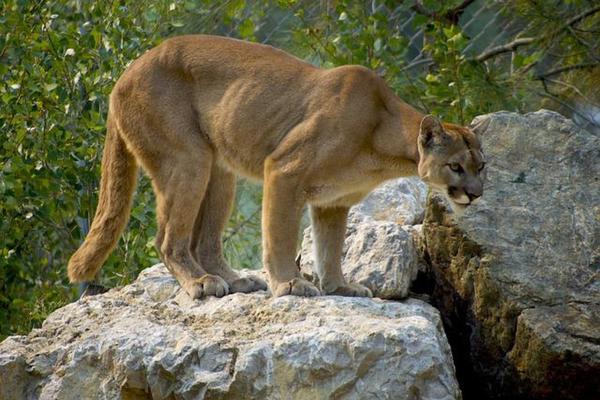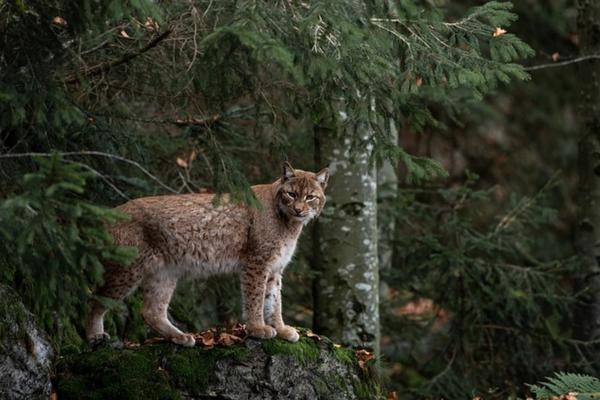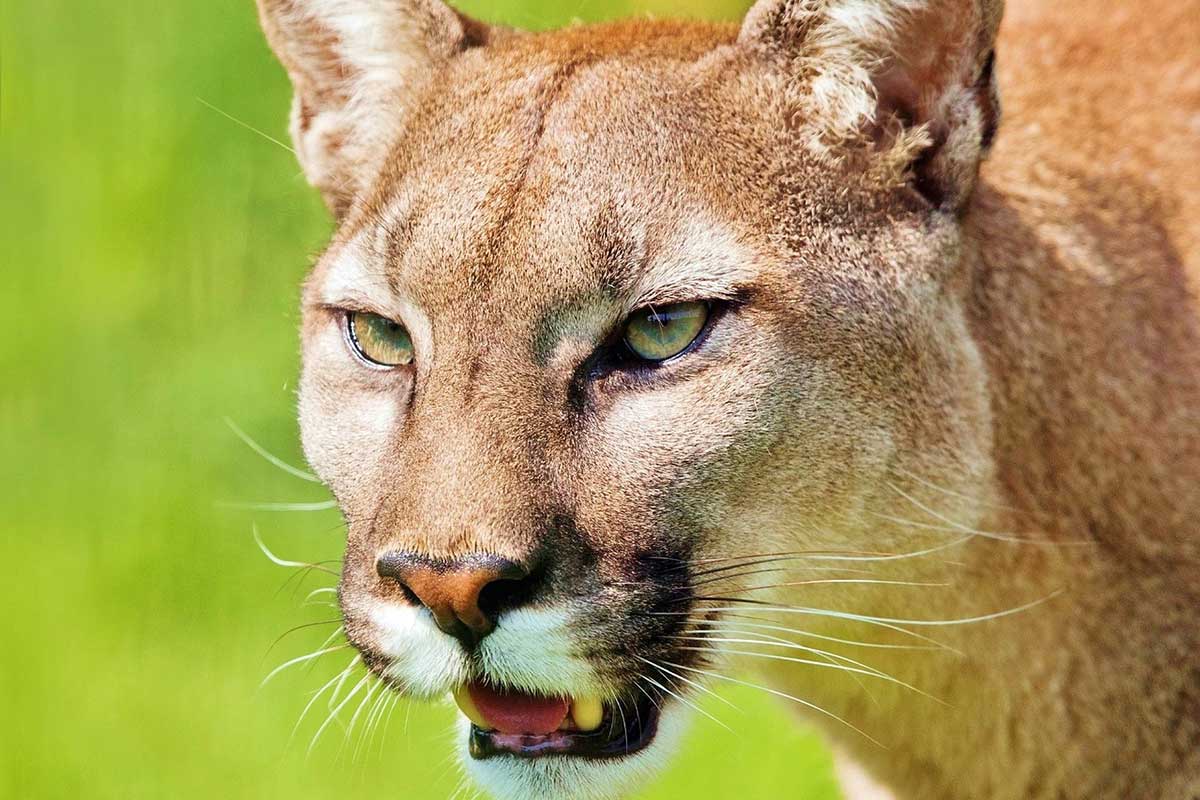Are there mountain lions in the Great Smoky Mountains? Many have claimed to see the big cats in the beautiful and wide span of the Great Smoky Mountains National Park. The native bobcat could easily be mistaken for a mountain lion, though the cats are similar, they are not the same. Mountain lions are much larger than their commonly mistaken counterparts, growing to be 7-9 feet, while bobcats are usually only 3 feet long with much shorter tails.
Are there mountain lions in the Smoky Mountains?
Mountain lions were extirpated from Tennessee in the 1900s and North Carolina in the 1800s, which includes the Smoky Mountains. While there are reported sightings of mountain lions every year in the Smoky Mountains, they are likely bobcats and none have been confirmed as actual cougars. So as far as anyone knows, there are no mountain lions in the Smoky Mountains nor have there been for a long time.
Having said that, there have been a handful of confirmed sightings in Tennessee since 2015, so it’s possible mountain lions are making a comeback in this area of the country. Between 2015 and 2016 there have been at least 10 confirmed sightings of mountain lions in Tennessee in Obion, Humphreys, Carroll, and Wayne counties. None of these counties are in the Smoky Mountains.
When mountain lions were in the area

As mentioned, there was a presence of the feline in the early 1900s, but the eastern cougar, or mountain lion, has been considered extirpated (locally extinct) since the 1930s and was commonly referred to as “ghost cats”.
Their existential decline, beginning in the 1800s, was due to a combination of their main food source dwindling, the white-tailed deer, and human settlement, leaving them without a place to live.
Upon visiting the endangered species list website, they had only been officially extinct in 2011. The population was considered too low to revive this subspecies.
Though if you ask around the locals, someone is bound to have a story to tell. Eastern mountain lions were taken off the endangered species list in 2015 since they don’t include already extinct animals on the list.
The confirmed sightings in Tennessee
Cougars, or mountain lions, have been known to travel quite far searching for a new home. It’s likely these cats traveled all the way from the midwest!
In 2012, the Journal of Wildlife Management conducted a study on their adventure to new places, concluding they’re making their way eastward. One of the most interesting confirmed findings was a hair sample submitted by a hunter in Caroll, Tennessee which is a little more than 300 miles from the Smoky Mountains.
This sample was actually traced back to similar DNA of cougars in South Dakota! Don’t worry though, if the powerful carnivore does eventually make an established home in Tennessee, it could be hundreds of years.
What makes a sighting confirmed?
Having many claims, it’s followed by a heavy lack of evidence. To be considered a confirmed sighting, there has to be extensively examined the evidence, such as a trail camera or most preferably DNA samples.
When ensuring the sightings submitted are legitimate, apparently, there’s a handful of individuals photoshopping different combinations of fabricated evidence.
No matter if they’re adding pictures of the cats to land in Tennessee, submitting a photo from somewhere else entirely, or adjusting the look or perspective of a common cat, dog, coyote, or bobcat, the TWRA (Tennessee Wildlife Resources Agency) inspects the area where the claim is.
They’re dedicated to determining authenticity or fraud! Considering there have only been 10 confirmed sightings in 2015-2016 so far, with all the trail cameras landowners have placed in the Smokies if they were here, we likely would’ve documented them by now.
Types of mountain lions in North America

As mentioned above, the western cougar is likely the cat to be prowling through Tennessee. Their homes and breeding grounds consist of Western Canada, Western US, and other parts of Mexico.
It’s incredible how far these animals can travel, and most of the time unnoticed! They’re stealthy creatures, nocturnal, and usually not threatening. The eastern cougar, once native to the Smokies and claiming the east side of the Mississippi River, is now extinct.
Lastly, the Florida Panther is also known for roaming, including sightings in Alabama and Georgia. These cats are considered endangered, as well as the only breeding cougars in the east of the US.
Bobcats in the Smoky Mountains

Since we know mountain lions haven’t been confirmed in the Smokies, and rarely confirmed in Tennessee at all, their relative the bobcat is native to the park. Though they’re fairly well populated in the area, it’s highly uncommon that you’ll ever see one!
Also, stealthy creatures, as cats tend to be, they are quiet and secretive animals. When hunting, they can run up to 30 mph, and they’re careful about their steps, placing their hind feet in the same place as the front to reduce noise.
They also creep up on their prey, as they can only maintain a speed that high for a short spurt. Their prey usually consists of small animals, such as rabbits, dogs, and birds, as well as any small animal they can find.
So if you do happen to see one, which would be a rare encounter in itself, it’s highly likely it won’t bother you. Few lucky people have spotted bobcats from a distance and had the opportunity to watch them sniff around and prowl.
Bobcat attacks on humans are basically nonexistent unless provoked. It would be wise to keep a close eye on your dog, especially off-leash in the national park, due to the bobcats as well as a scare from a bear!
Claims have been made and commonly talked about, but in reality, there have been no confirmed sightings in the Smoky Mountains. Tennessee has had about 10, but all confirmed encounters are 3-7 hours away.
I’m sure this won’t stop the claimed sightings or photoshopped frauds, but now you have the facts! Including other information, you might actually use.
Conclusion
To summarize, there are currently no mountain lions living in the Smoky Mountains in Tennessee or North Carolina. They were extirpated from the area a long time ago. While it is possible they are slowly making a comeback to some nearby areas, there have been no confirmed sightings in the Smoky Mountains.
